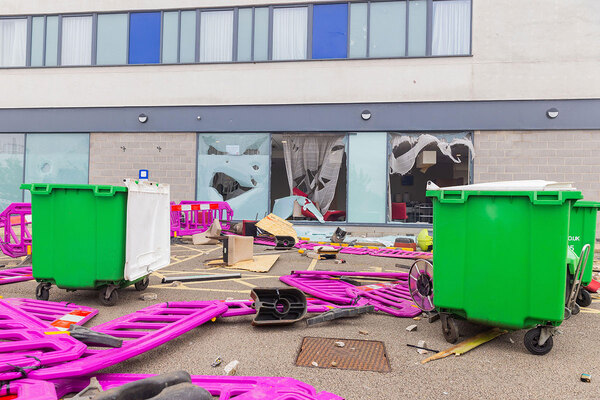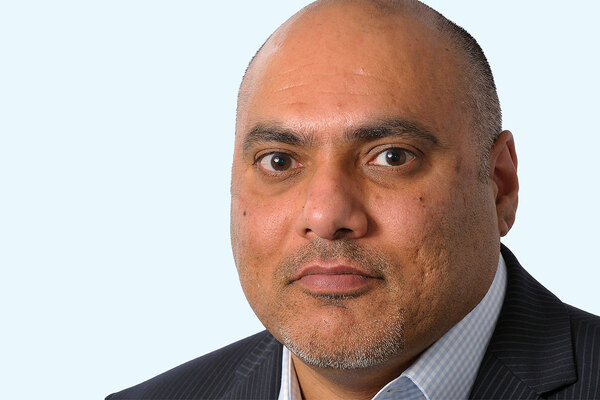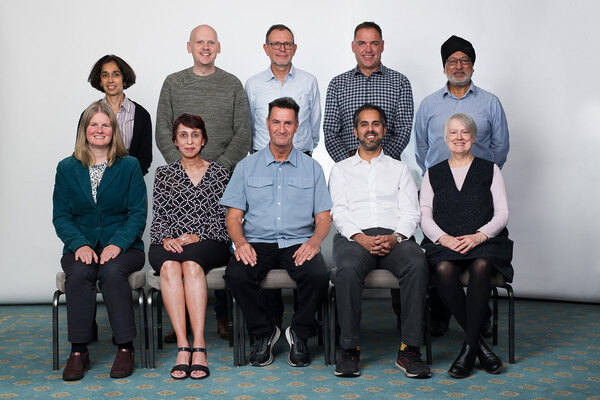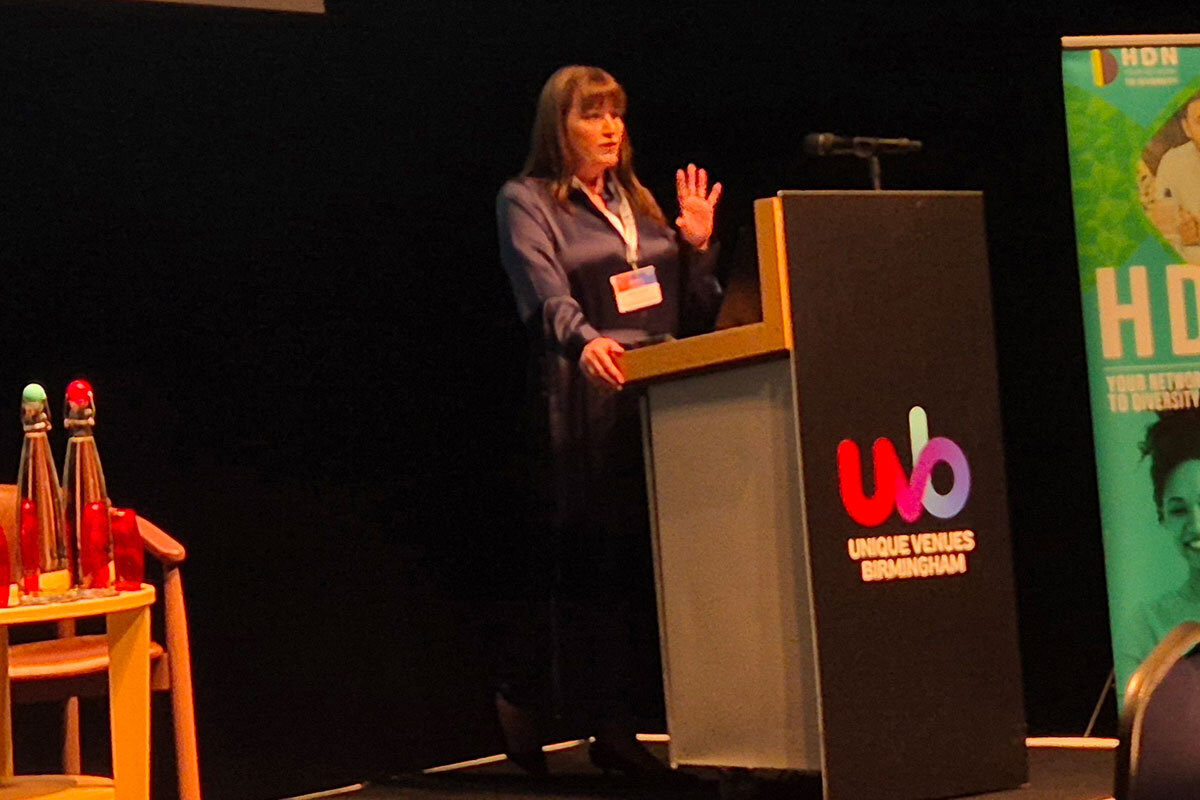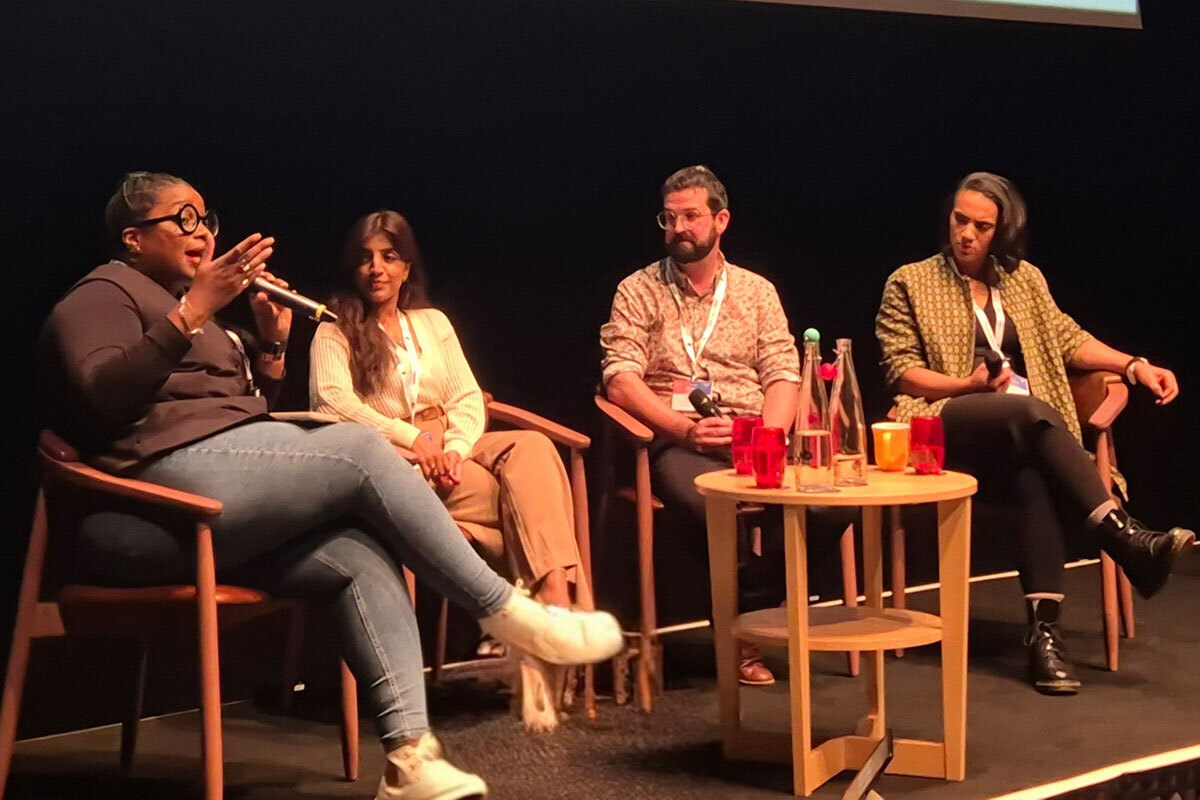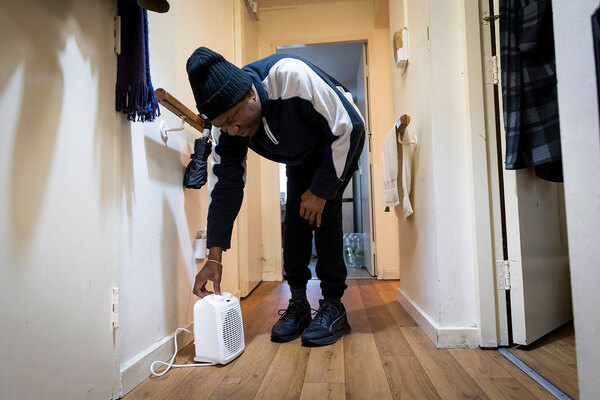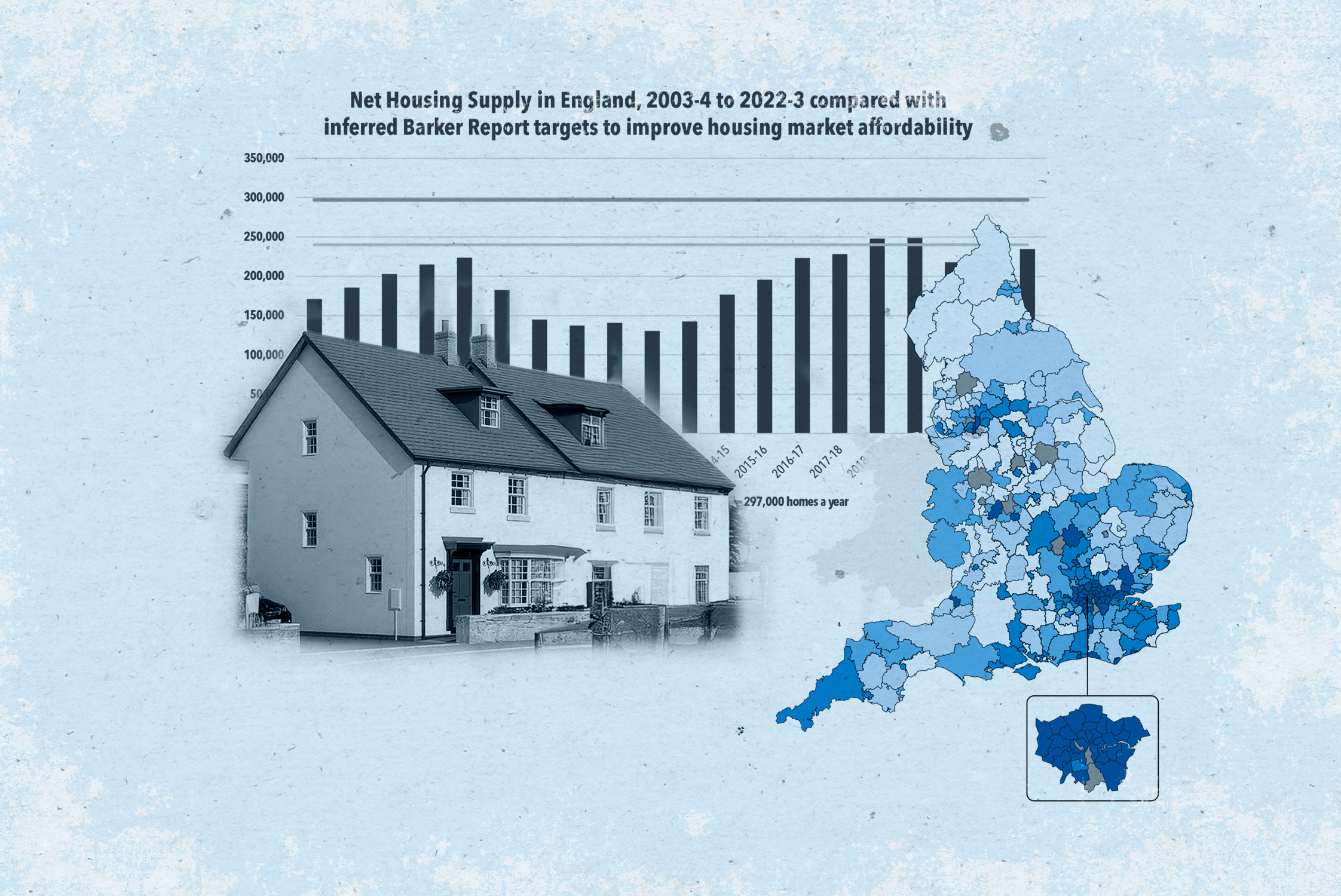You are viewing 1 of your 1 free articles
Sector ranked 4 out of 10 on EDI and must challenge misinformation around housing
Professionals from across the sector descended on the Birmingham Repertory Theatre on Thursday for the Housing Diversity Network’s (HDN) annual conference, with EDI and misinformation two of the key discussion points
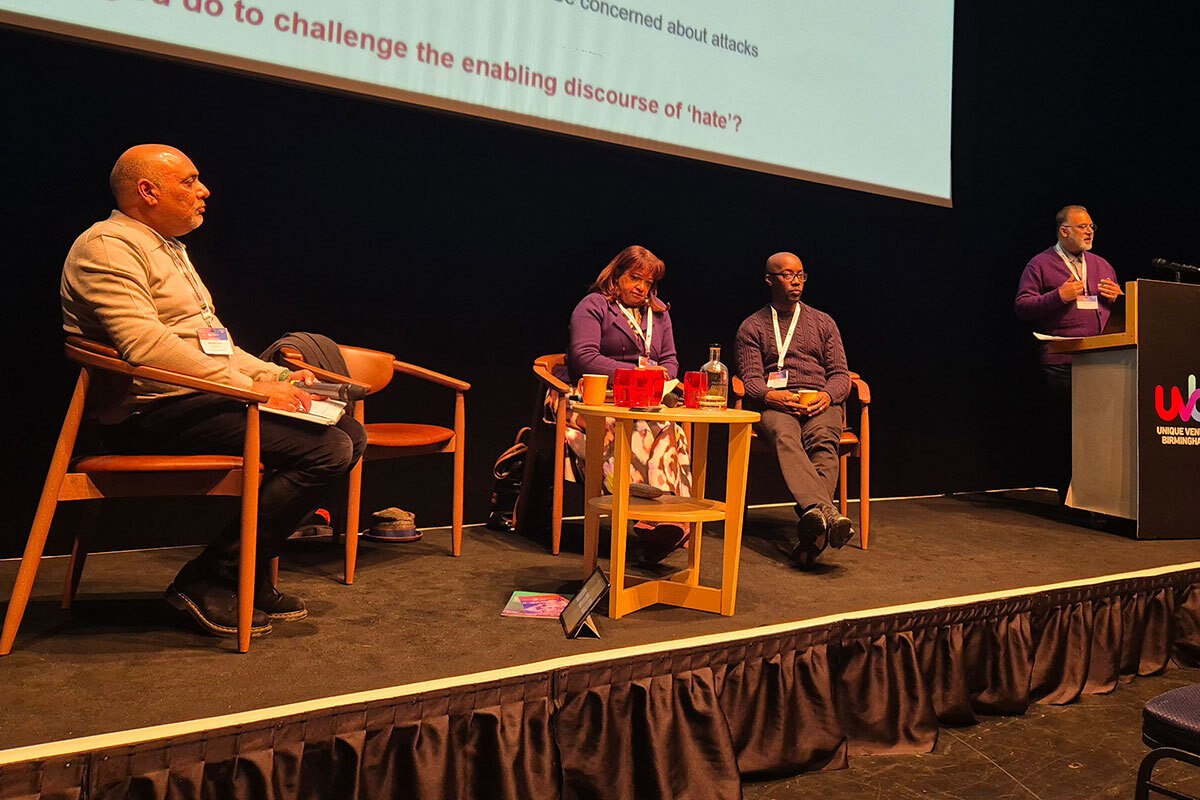
With the temporary fence from the Conservative Party Conference being dismantled opposite the venue, the sun also came and offered attendees a chance to dry out after a dreary few days.
The Rep, as it is commonly known, can be traced back to 1907 and was set up “to serve an art instead of making that art serve a commercial purpose” and would go on to become Britain’s first purpose-built repertory theatre.
While HDN was established just short of 100 years later, its purpose as a social enterprise and membership organisation in an industry not known for its diversity, is as significant.
In its own words, HDN is “dedicated to supporting housing sector organisations in their journey to address inequality, maximising the potential of their workforce, and catering to the diverse needs of the communities they serve”.
With that in mind, the well attended one-day event featured talks from both the English regulator and the Housing Ombudsman, plus a number of panel sessions on embedding equality, diversity and inclusion (EDI) across boards, regulation and leadership.
This was in addition to several breakout sessions that tackled topics such as implementing the requirement for professional qualifications, and striving for a collaborative and inclusive repairs and maintenance service.
Inside Housing has some of the key talking points below.
Recovery plan was just the start of the process, says RBH boss
Amanda Newton, chief executive of Rochdale Boroughwide Housing (RBH), shared how the delivery of the landlord’s recovery plan has helped the organisation to provide more inclusive and responsive services, and how a shift in culture has helped RBH to better understand the voices of the diverse range of people who work for RBH and live in their homes.
Ms Newton had spoken to Inside Housing a month-and-a-half after taking over as chief executive of RBH. At that time, it was one year since the conclusion of the inquest into the tragic death of Awaab Ishak. On 15 November 2022, the inquest found the two-year-old died from a respiratory condition caused by prolonged exposure to mould in an RBH flat.
Back then, she admitted “there’s a lot to do” and as she gave an update on RBH’s progress, she was clear that striving to be a good landlord that is inclusive and responsive is a process “that has no end”. RBH has completed 163 actions over the past 12 months.
Ms Newton, who has now been in post for around 15 months, said: “Our recovery plan was just the start of the process, and it’s much more than just taking actions on a plan.
“It was a major work around understanding and focusing on building a new culture, and a culture that people could engage with. It focused on the fundamental things around returning to our role as being a great landlord and a provider of really safe and warm homes for our customers.
“It was about earning the trust of people living in our homes so that they feel safe and confident in their landlord. And it was also about building the trust of the 600 people who work in our business and do their best every day for the people who live in our homes.”
The chief executive ran through a number of initiatives including improving digital inclusion, working with local authorities and third sector groups and celebrating religious and cultural events.
Ms Newton added: “So we’ve fundamentally shifted the way in which we engage with our customers, and we bring them into our business at every opportunity, and ensure their voice is really loud.
“This is very much work in progress, and we know where our ambitions lie, and we know it won’t happen overnight, but we’re making real progress.”
How can you hold a board to account that doesn’t practise EDI?
An animated panel discussion, called Leading for Inclusion: EDI as a Core Boardroom Value, asked some difficult questions of the sector’s senior leaders.
Kanika Selvan, managing director of Beetroot Consulting, said: “Diversity of the boardroom is very much a reflection of the practices of boards. So, let’s ask ourselves a question: can we really hold the housing board to account if fundamentally, the board, in and of itself, is very unlikely to have diverse and inclusive practices?”
Earlier in the discussion, panellists were asked to rank the sector on its progress in EDI, which resulted in an average from across the four panellists of just over four out of 10.
Sharon Thandi, senior associate at Devonshires Solicitors, explained why EDI should have as much strategic value as finance and customer services.
She said that the landlords have a duty to both staff and residents to have an inclusive culture.
“The consumer standard explicitly mentioned diverse needs in several sections now in a way that we didn’t have in the previous standard,” added Ms Thandi.
The senior associate said it really shouldn’t take the stick of the regulator to take EDI issues seriously and pointed out that the evidence is out there which shows how “the most diverse organisations, most inclusive organisations, are the most productive and the most efficient.”
Luke Stanley, organisational development lead at Futures Housing Group, told attendees that the landlord had taken on an approach that moves away from having an EDI strategy that is separate to its corporate one or any other part of the business.
“The EDI strategy in itself is less important, because actually it’s written into all of our other structures,” he explained.
RSH admits it has to improve diversity in it own ranks
Kate Dodsworth, chief of regulatory engagement at the Regulator of Social Housing (RSH), set out the regulatory point of view on everything from the consumer standards, and tenants satisfaction measures, to the financial health of the sector, which she said was as acute as the financial crisis in 2008.
Ms Dodsworth was challenged by an audience member about the RSH itself ensuring diversity in its teams that go out to inspect housing associations.
In response, she admitted that progress had been “too slow for my mind”.
She added: “One of our objectives is to increase diversity, particularly at a senior level. We’re seeing, like a lot of organisations, much more diversity through some of our actions further across the organisation, but not so much the senior level.
“So I cannot guarantee the diversity of a group of people coming out to do the regulation, but what I can reassure you is that the training and the focus on diversity is as good as in our organisation.
“I am absolutely that number one, our priority is that people understand what it’s like being a tenant – maybe not have that lived experience, but understand what this is like through some of the work that we do.”
Should the sector be better at challenging misinformation around housing?
Another panel discussed the repercussions of the racist and Islamophobic riots across the UK, and what the sector can do to prevent these from happening again.
The panel touched on how the sector responded, senior political figures and media portrayals of race and class, and the impact of socio-economic inequalities, especially in marginalised communities, including the lack of housing.
Mushtaq Khan, chief executive at HDN, suggested to the panel that the sector needed to be better at challenging misinformation around housing, particularly around allocations and asylum policies.
HDN had previously issued advice to support tenants through the riots, and Mr Khan set out in August how housing organisations can play a central role in community cohesion in the face of far-right violence.
Tracey Gore, director of Steve Biko Housing Association, said: “We should be better. It’s a good observation. I think from a leadership point of view, we’ve been reluctant to put our head up against the parapet.”
Kush May-Chahal, senior research fellow at Birmingham City University and trainer for Stop Hate UK, had begun the session with a short presentation on where the rioters had come from.
He said the riots were not inevitable, but were rather “created in the corridors of power and through poverty”. The data he shared showed how more than two-thirds of people charged were from deprived neighbourhoods, and he spoke of the importance of checking in on staff and residents at the time.
“If we are going to talk about racialising experiences, and using this as a trigger to do something, then take that courage that we have, and take that leadership responsibility to think through how we could potentially start having difficult conversations, because you know your people better than that,” he added.
Recent longform articles by Stephen Delahunty
Can the sector afford shared ownership reform?
MPs are calling for “urgent” reform of shared ownership, as residents struggle with growing bills. But what will reform do to the finances of social landlords? Stephen Delahunty speaks to the sector
Autumn Budget 2024: Reaction from the sector
Chancellor Rachel Reeves has delivered the Labour Party’s first Budget in 14 years. Stephen Delahunty has rounded up key responses from the sector
Sign up for the IH long read bulletin
Already have an account? Click here to manage your newsletters
